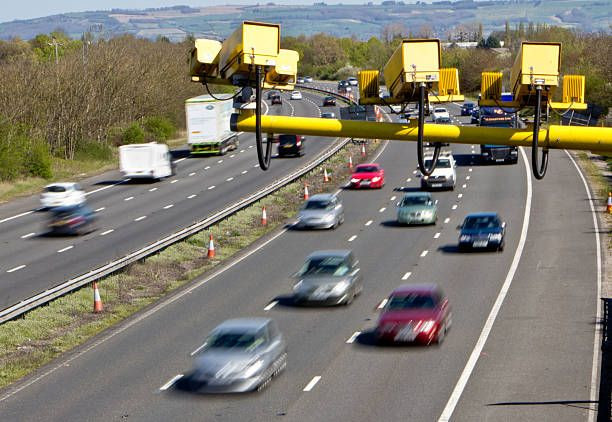Artificial Intelligence - or AI for short - is being integrated into many areas of our lives. From internet search engines to voice recognition technology, AI is something that is here to stay, and it is even being used to enhance the effectiveness of speed cameras, too.
While most people understand how a standard speed camera works, these new versions introduce some extra technology that can help them catch more people breaking the law. In this article, we’re going to explore how they work and what they do.
Receive more information on the UK’s latest safety features by contacting David Hayton today!
What are AI Speed Cameras, and How Do They Work?
New Artificial Intelligence speed cameras are being trialled by some police forces as a way of tackling those breaking the speed and some other motoring offences. In many ways, they’re similar to a conventional speed camera, in that they can detect how fast a vehicle is travelling and whether it’s over the prescribed limit. However, AI-using cameras can instantly check a car’s key information such as make, model and number plate, while checking it on a national database. As well as the speed, these cameras can check to see whether a vehicle is insured and taxed or not.
Alongside these features, an AI-enabled speed camera also takes a high-res photo of the person behind the wheel in enough clarity to ‘see’ whether they’re using their mobile phone or not wearing a seatbelt while driving. It adds another layer to what a usual speed camera can detect.
Will Drivers Encounter These Cameras on UK Roads?
While AI-enabled cameras aren’t a mainstay on UK roads just yet, they’re starting to become more commonplace as police forces trial them. Key trials include a two-week period in 2023, which saw over 300 drivers caught for speeding or not wearing a seatbelt in Devon, while in 2024, more than 3,200 people were caught speeding or using their mobile phones in Greater Manchester.
North Wales police forces have also used the AI speed cameras to crack down on speeding drivers, while in Durham, 951 offences have been detected by the new technology.
Are Further Cameras Being Installed?
While there hasn’t been a certified roll-out of AI-enabled speed cameras just yet, it’s more than likely that further trials will take place across the country.
However, the A361 between Ilfracombe and Barnstaple in Devon will receive a full suite of AI-enabled cameras after it was identified as a high-risk route. Devon’s council voted to use £1m of its £5m in Department for Transport funding to pay for the new cameras, with three separate units installed across the route.
Are the Cameras Entirely Autonomous?
While much of the processing power does go on within these AI cameras, there is still an element of human interaction which is required. Rather than immediately issuing a ticket once a camera has detected a speeding or law-violating driver, a process will see a police officer check over the produced photo to ensure its accuracy and prevent any issues.
However, once the evidence has been reviewed and confirmed, a ticket or court order will still be sent out in the same fashion as with a standard speeding ticket.
Here at David Hayton, we’ve got in-car technology that will impress, including the latest in speed detection systems that can help you avoid any tickets in the future. To find out more, head to our current stock list to see what’s on offer.

